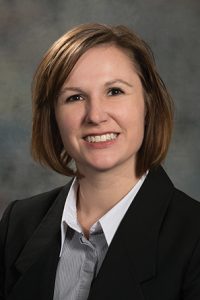Property tax “circuit breaker” proposed
Nebraskans whose property taxes are high relative to their incomes could apply for a refundable income tax credit under a bill heard Feb. 21 by the Revenue Committee.
Under LB420, introduced by Lincoln Sen. Kate Bolz, qualifying residential homeowners and renters as well as agricultural and horticultural landowners could apply to the state Department of Revenue for the credits for tax years beginning Jan. 1, 2020.
The credits would go to those who own agricultural or horticultural land used in a farming operation that has a federal adjusted gross income of less than $350,000 in the most recent taxable year. A qualifying agricultural taxpayer could receive a credit equal to the amount of property taxes paid on his or her land during the most recently completed taxable year minus 7 percent of his or her federal AGI.
An individual whose principal residence is in Nebraska and who has a federal AGI of less than $100,000 for someone who is married filing jointly or $50,000 for any other filer also would qualify. Qualifying homeowners and renters could receive a credit of between $300 and $1,200 depending on their income.
Bolz said 18 states use “circuit breakers” similar to the one in LB420 to trigger an income tax credit when a person’s property taxes exceed a certain percentage of his or her income.
“LB420 targets property tax relief to those who need it more, both residential property taxpayers and modestly sized farm operations,” she said.
The department could certify up to $107.6 million in credits for agricultural taxpayers each year. The bill would limit credits for residential taxpayers to $82.7 million each year. If the total amount of credits calculated for applications received in any year exceeds those caps, the department would reduce the credits by a proportionate amount.
The department expects that the cap would be exceeded each year, resulting in an annual estimated reduction in general fund revenue of $190 million beginning with fiscal year 2020-21.
Tiffany Friesen Milone, policy director at OpenSky Policy Institute, testified in support of the bill. The final report of the Legislature’s Tax Modernization Committee and a 2014 Revenue Committee report on property taxes both recommended using circuit breakers to offset property taxes, Friesen Milone said.
Jordan Rasmussen, policy manager for the Center for Rural Affairs, also testified in support. She said the value of a home or property does not always relate to the owner’s income and ability to pay the associated property taxes. Circuit breakers offset this regressivity by providing relief to those who pay a higher proportion of property taxes relative to their household income, Rasmussen said.
While it would provide significant savings for those who qualify for the credits, she added, LB420 would not correct the state’s heavy reliance on property taxes to fund K-12 education and other government services.
“In order for a property tax circuit breaker to provide the greatest benefit to … the state’s rural communities,” Rasmussen said, “additional state revenues and a broader rebalancing of Nebraska’s tax system will be required.”
Suzan DeCamp also testified in support of the bill on behalf of AARP Nebraska. Because property taxes are imposed on non-liquid assets, she said, it can be difficult for those with limited liquid incomes, such as older Nebraskans, to afford them. That is especially true for those whose home valuations have increased, DeCamp said.
“Many who may now be retired do not have the income to afford the yearly increases in their property taxes, especially while also meeting their basic needs for food, medicine and utilities,” she said.
No one testified in opposition to the bill and the committee took no immediate action on it.

